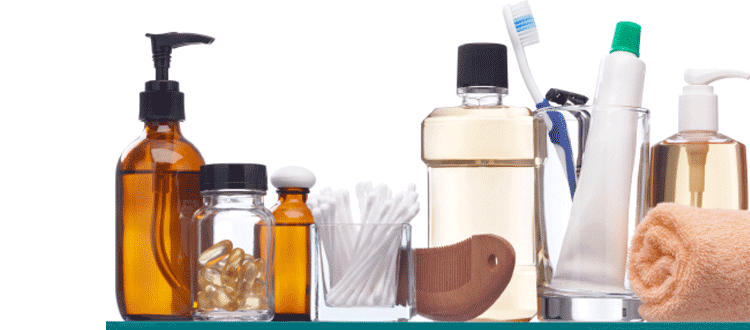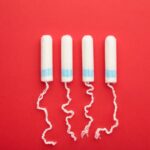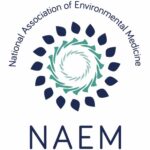Is Your Morning Routine Riddled With Toxic Chemicals?
 |
| Kenzie Lombardi WVE Intern |
When I first started to learn about toxic chemicals in personal care and cleaning products, my first reaction was “Surely, there can’t be that many dangerous ingredients in the products I use.” After all, I don’t wear a lot of makeup daily, I have approximately one hair product, and I never wanted to spend money on fancy perfumes. But, as I learned more, I started doing the math on the toxins I was exposed to just during my morning routine. I was shocked, and more than appalled, especially when I thought of all of the women just like me who are using the same products every single day. In addition to the economic and social burdens of being a woman, many of the products targeted our way are downright poisonous; it’s a kind of environmental sexism that is widespread, and often unnoticed.
Before I’ve even walked out my front door, I’m exposed to dozens of harmful chemicals:
- When I inevitably hit the snooze button and catch a few extra minutes of sleep in my freshly washed sheets:
- Alkyl phenol ethoxylates (APEs) from my laundry detergent may be causing harm to my reproductive system or
- Monoethanolamine (MEA) in the detergent could be contributing to asthma
- When I hop in the shower:
- 1,4 dioxane in my sudsy shampoo is increasing my risk of cancer
- My sweet smelling body wash may contain formaldehyde, increasing risk of cancer, skin irritation, and respiratory problems!
- Triclosan in my toothpaste may be causing hormone disruption and increasing my risk of breast cancer
- As I get dressed for the day:
- Dyes and fragrances in the clothes closest to my body are exposing me to hazardous chemicals all day long
- If I use a feminine care product (including pads, tampons, sprays, or washes), I may exposed to pesticide residues that can lead to allergic rash and other increased risks.
- When I put on my makeup:
- Synthetic musks are lurking in my fragranced moisturizer which may break down my body’s defenses against other toxic chemicals
- My favorite shade of lipstick may have lead in it, leaving me vulnerable to reproductive harm, nerve, joint, and muscle disorders, and even heart, bone, and kidney problems!
- That body spray I love has phthalates which may be reducing my fertility, increasing risk of breast cancer, and increasing allergic symptoms
- As I do a quick clean up:
- Before I head out the door, I give my counter top a quick spray of all purpose cleaner. Unfortunately I just exposed myself to 2-butoxyethanol which may reduce my fertility.
In the span of a few hours I have already exposed myself to all of these dangerous chemicals! And this is a process that happens every single day of my life.
The good news is that there are a lot of steps we can take to create a better, non-toxic world.
- DIY: I’ve recently started making my own moisturizer with coconut oil and essential oils. Not only does my skin look and feel healthier than ever, I am also secure in knowing that using this product daily isn’t harming my body.
- Shop Smart: Read labels to avoid toxic chemicals such as parabens, sodium laureth sulfate, and oxybenzone. Resources like the SkinDeep database and app are a great way to check a product’s safety before you buy.
- Say No to Synthetic Fragrances: Shop for products that are labeled “fragrance-free.” Note: “Unscented” DOES NOT MEAN “fragrance-free.”
- Ditch the Disinfectants: Even the FDA admits that there’s NO evidence that using household disinfectants prevents illness better than plain old soap and water. Instead, the concentrated chemicals act as powerful irritants. Avoid “anti-bacterial” and “disinfectant” products.
- The bottom line is that THIS IS WRONG. I deserve to live in a safe, non poisonous environment. Help the WVE community eliminate toxic chemicals that harm women’s health! Join Women’s Voices for the Earth!





